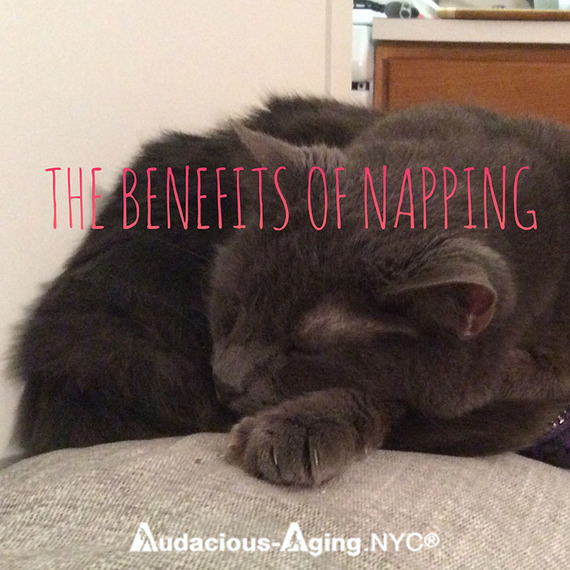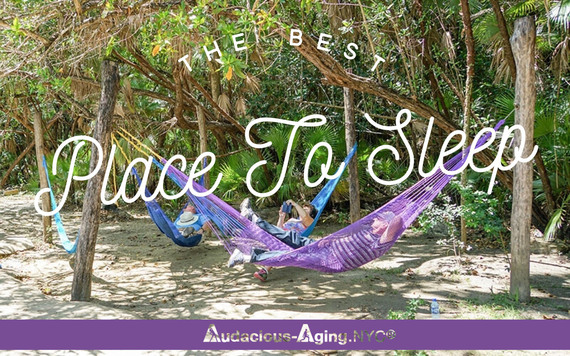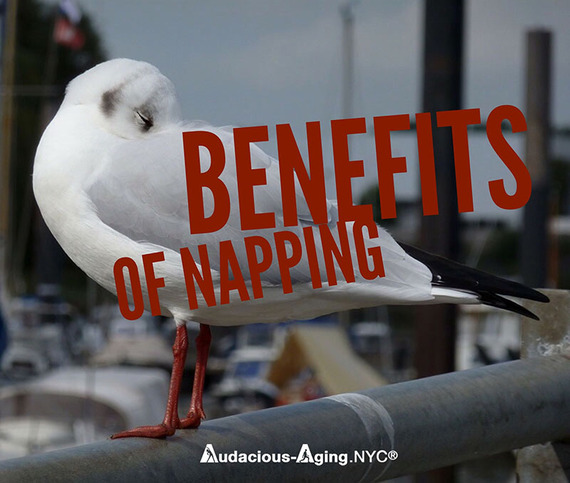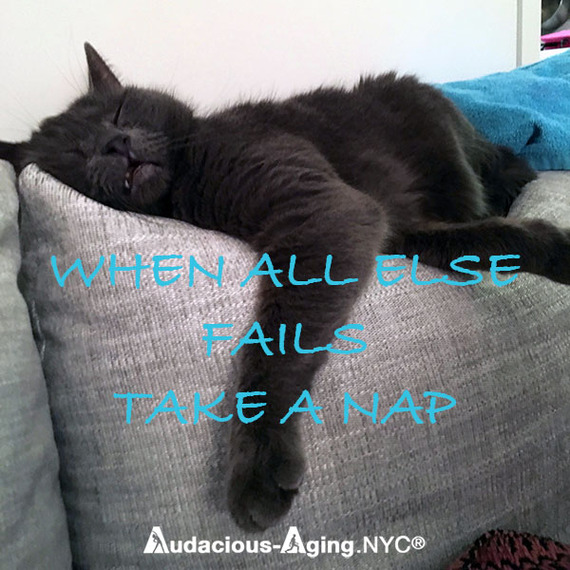Birds do it, bees seem to do it, and we all KNOW cats do it. So let's do it, too. Let's take a nap. Seriously, though: whenever people talk about naps, someone inevitable claims they can't nap during the day; they simply can't fall asleep, or when they do nap, they wake up groggy and unable to work. If those sound like your excuses, read on, my sleepy friends. (Source)
The first thing you should know is, feeling sleepy in the afternoon is normal. It doesn't mean you had a big lunch, or you're depressed, or you're not getting enough exercise. That's really how animals' cycles work -- every 24 hours, we have two periods of intense sleepiness. One from about 2am to 4am, and the other around 10 hours later, between 1pm and 3pm. It happens to everyone; we're physiologically hardwired to nap. As a result, the desire to nap is actually an expression of the natural rhythms of our bodies, regardless of whether we get enough sleep at night. (Source)
Celebrity Nappers
Some of our most historic brains are noted fans of napping: Albert Einstein, Thomas Edison, Napoleon Bonaparte, Ronald Reagan, Bill Clinton, Brahms, Leonardo da Vinci (Source)
How to Nap
For the best experience, MentalFloss.com says lying down will speed up falling asleep for a nap by 50%. Also, a dark, cozy place that's not too warm or too chilly is optimum. And Prevention.com recommends napping on the couch instead of in bed, so you're less tempted to snooze for too long. Surprisingly, a Swiss study found that the best place to nap is in a hammock, where people fell asleep faster and had deeper sleep than in a bed. And finally, a sleep mask will help by eliminating light. (Source)
How Long to Nap
Sleep experts say the length of your nap has a huge effect on how alert you feel afterward. It all has to do with sleep cycles. A quick power nap should last between 10 and 26 minutes. An hour-long nap will trigger rapid eye movement (REM) sleep, which helps improve memory, and a 90-minutes snooze will get you through a full sleep cycle, which can boost creativity and emotional memory. Beware of sleeping for longer than 90 minutes; you'll enter a new sleep cycle and won't get any additional benefits. (Source)
Also, it sounds counter-intuitive, but a cup of coffee right before a nap may be the perfect aid for optimal alertness, according to Japanese research. Since caffeine takes 20 to 30 minutes to take full effect, you'll feel even more awake after your 20-minute rest. (Source)
Benefits of Napping
A nap can improve your health: A study of Greek adults found that napping at least three times a week for 30 minutes or more was associated with a 37% lower risk of death from heart disease. (Source)
Naps make you smarter: In a study funded by NASA, David Dinges, a professor at the University of Pennsylvania, and a team of researchers found that letting astronauts sleep for as little as 15 minutes markedly improved their cognitive performance, even when the nap didn't lead to an increase in alertness or the ability to pay more attention to a boring task. (Source)
And naps make you happier: Studies show we can process
negative thoughts quite well when we're exhausted -- just not the happy ones. (Source)
Napping will boost your memory and make you more creative: Research at Harvard Medical School found that napping, especially when accompanied by dreaming, was an effective tool for improving memory and learning ability. Even better, you may get the benefits even if your nap is interrupted. Neuroscientists at the City University of New York found that taking a nap boosts a sophisticated type of memory that helps us see big picture ideas and be more creative. (Source1) (Source2)
Even the thought of a nap is a plus: A British study suggests that just knowing a nap is coming is enough to lower blood pressure. (Source)
Of course, we'd all be better off with 8 or more hours of sleep a night -- but that's probably not going to happen for most of us. So a daily nap can buoy us up when we're not getting quite enough winks at night. Remember this: napping is not a character defect!
Jacqueline Gikow is an enthusiastic, supportive personal trainer and wellness coach, inspiring a healthy, active, and vital life now and tomorrow through taking control of weight issues, maintaining healthy bones and brain, keeping their hearts strong and joints flexible as well as letting go of old habits.
What's stopping you from being the best you can be? The best way to get things done is to begin. Contact me through Audacious-Aging.NYC®, to get started with remote coaching or an in-home personalized fitness program.



